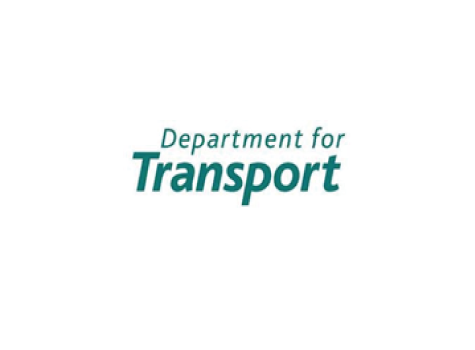Green light for pioneering scheme to tackle rush hour road works disruption
News provided by Falcon PR on Saturday 17th Mar 2012
An innovative scheme to help reduce disruption caused by road works on London's busiest roads was given the go-ahead today by Transport Secretary Justine Greening.
The Transport for London scheme - the first of its kind in Britain - will start in June. TfL will be able to charge utility companies up to £2,500 a day to dig up the busiest roads during peak times when road works cause the most disruption.
This will incentivise utility firms to carry out their works more quickly and at times when roads are quieter. Companies would be able to avoid the charges by carrying out works during less busy periods or, if appropriate, at night.
Justine Greening said:
"Anyone who has travelled on London's roads knows how frustrating it is to find major routes being dug up in the middle of the rush hour or - even worse - lanes coned off when no one is even carrying out any work.
"It's not just inconvenient but expensive, costing the economy £4 billion a year.
"Im pleased the Mayor and TfL have got cracking in bringing forward proposals for a lane rental scheme which will bring real benefits to those travelling in the capital."
In order to gather evidence on the effectiveness of lane rental, the Department for Transport has proposed that there should be up to three pioneer areas and is inviting applications from two more interested local authorities. Successful pioneer areas will need to have exhausted other options, including using a permit scheme and their lane rental schemes will have to be evaluated annually.
The guidance which accompanies the new powers makes it clear that lane rental charges must be avoidable and proportionate to the costs of congestion. Any revenue raised from the implementation of lane rental charges will have to be used to fund measures which could help to reduce future road works disruption. This could include infrastructure work, research or measures to improve the management of works.
Notes to editors
1. The primary legislation (section 74A of the New Roads and Street Works Act 1991) provides the necessary powers for local highway authorities to put in place lane rental schemes, subject (in England) to the approval of the Secretary of State, and allows Regulations to make further provision about such schemes.
Press Enquiries: 020 7944 3066
Out of Hours: 020 7944 4292
Public Enquiries: 0300 330 3000
Department for Transport Website: www.dft.gov.uk
www.twitter.com/transportgovuk | www.youtube.com/transportgovuk | www.flickr.com/transportgovuk
The Transport for London scheme - the first of its kind in Britain - will start in June. TfL will be able to charge utility companies up to £2,500 a day to dig up the busiest roads during peak times when road works cause the most disruption.
This will incentivise utility firms to carry out their works more quickly and at times when roads are quieter. Companies would be able to avoid the charges by carrying out works during less busy periods or, if appropriate, at night.
Justine Greening said:
"Anyone who has travelled on London's roads knows how frustrating it is to find major routes being dug up in the middle of the rush hour or - even worse - lanes coned off when no one is even carrying out any work.
"It's not just inconvenient but expensive, costing the economy £4 billion a year.
"Im pleased the Mayor and TfL have got cracking in bringing forward proposals for a lane rental scheme which will bring real benefits to those travelling in the capital."
In order to gather evidence on the effectiveness of lane rental, the Department for Transport has proposed that there should be up to three pioneer areas and is inviting applications from two more interested local authorities. Successful pioneer areas will need to have exhausted other options, including using a permit scheme and their lane rental schemes will have to be evaluated annually.
The guidance which accompanies the new powers makes it clear that lane rental charges must be avoidable and proportionate to the costs of congestion. Any revenue raised from the implementation of lane rental charges will have to be used to fund measures which could help to reduce future road works disruption. This could include infrastructure work, research or measures to improve the management of works.
Notes to editors
1. The primary legislation (section 74A of the New Roads and Street Works Act 1991) provides the necessary powers for local highway authorities to put in place lane rental schemes, subject (in England) to the approval of the Secretary of State, and allows Regulations to make further provision about such schemes.
Press Enquiries: 020 7944 3066
Out of Hours: 020 7944 4292
Public Enquiries: 0300 330 3000
Department for Transport Website: www.dft.gov.uk
www.twitter.com/transportgovuk | www.youtube.com/transportgovuk | www.flickr.com/transportgovuk
Press release distributed by Pressat on behalf of Falcon PR, on Saturday 17 March, 2012. For more information subscribe and follow https://pressat.co.uk/
Road Works London Cars DFT Motoring Public Sector & Legal
You just read:
Green light for pioneering scheme to tackle rush hour road works disruption
News from this source:



